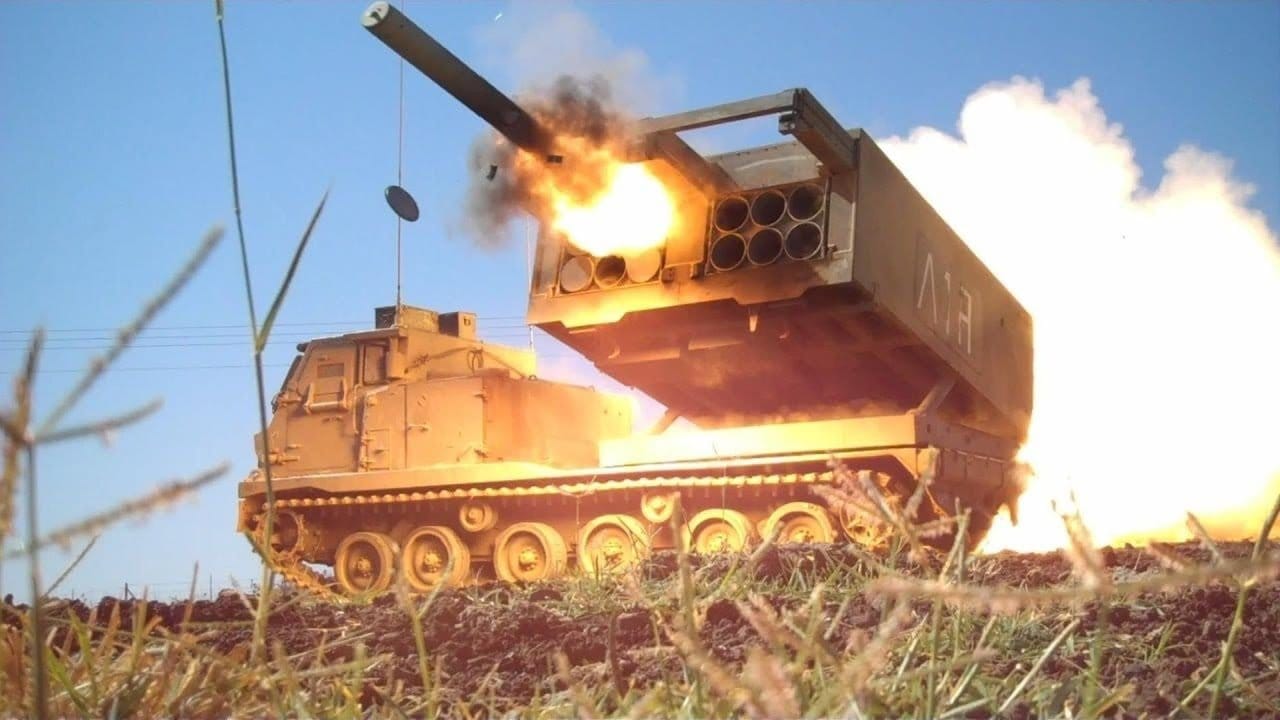Article Summary: Washington’s proposed 28-point Russia-Ukraine deal—trading Ukrainian territory, NATO aspirations, and war-crimes accountability for a ceasefire and cash—would echo Munich by rewarding aggression, not ending it. Moscow would keep key gains and see its methods vindicated.
-Worse, Beijing would treat the settlement as a template: if force secures Donbas, why not Taiwan?

Old Russian T-62 Tank Fighting in Ukraine. Image Credit: Twitter.
-Elbridge Colby’s shift away from treating Taiwan as vital only deepens that perception.
-Coercing Kyiv today signals to Xi that Washington might someday bargain away Taipei, inviting a wider era of “might makes right,” not peace.
Will the Russia-Ukraine Deal Condemn Taiwan?
On November 20, 2025, U.S. Army Secretary Daniel Driscoll reportedly gave Ukrainian President Volodymyr Zelensky an ultimatum: Agree to the 28-point U.S. peace plan by Thanksgiving or face a cut-off of intelligence and arms.
The U.S. deal, reportedly crafted by President Donald Trump’s envoy Steve Witkoff in consultation with Kirill Dmitriev, the chief executive of the Russian Direct Investment Fund, would force Ukraine to surrender the Donbas, prevent Ukraine from ever joining NATO, cap its military, and grant Russians immunity for war crimes. In addition, the United States would be able to pocket $100 billion in frozen Russian assets, with the other $200 billion returned to Russia.
If Zelensky does not agree, Trump threatens to cut off military and intelligence assistance. Trump’s demand comes despite Russia previously accepting both the 1991 Almaty Declaration that declared “inviolability of the existing borders” of those states, including Ukraine, that became independent following the Soviet Union’s fall and the 1994 Budapest Memorandum in which the United States and partner countries agreed to guarantee Ukrainian sovereignty and security in exchange for its forfeiture of its legacy Soviet nuclear missiles.
If implemented, the Ukraine peace would be the most humiliating peace imposed on a victim of aggression since the United Kingdom and other European powers forced Czechoslovakia to cede the Sudetenland to Germany in the belief that such a concession, while painful to Prague, could avert wider war.
Appeasing Russia or rewarding aggression will never bring peace, as it convinces Russia’s neo-imperialists that they can outlast opponents, no matter how hard and long the battles of attrition might be.
The problem for Trump’s legacy and international security is not the type or quality of peace between Russia and Ukraine, but rather how other aggressors might embrace Trump’s Russia-Ukraine peace agreement as a template for their own conflicts.
Consider Taiwan: While Chinese leaders declare that Taiwan is part of China, in reality, China has seldom controlled the island; its historical claim is risible and Beijing’s legal claims are as spurious. Even Mao Zedong, the founder of the People’s Republic, admitted in a 1936 interview with his hagiographer Edgar Snow. “It is the immediate task of China to regain all our lost territories, not merely to defend our sovereignty below the Great Wall,” Mao told Snow. “We do not, however, include Korea, formerly a Chinese colony, but when we have re-established the independence of the lost territories of China, and if the Koreans wish to break away from the chains of Japanese imperialism, we will extend them our enthusiastic help in their struggle for independence. The same thing applies to Formosa,” as Taiwan was then called. Xi’s claims over Taiwan today are as arbitrary and manufactured as Putin’s revisionist history of Ukraine.
If Russia can use military force to compel the absorption of parts of Ukraine, why would Xi not expect the same pattern to apply to any aggression he launches against Taiwan?
Undersecretary of Defense for Policy Elbridge Colby made his career arguing the United States must have laser focus on the Chinese threat to the exclusion of competitors and adversaries elsewhere; he has repeatedly claimed, for example, that any U.S. support for Ukraine is a distraction that runs counter to U.S. interests, especially if it depletes ammunition or capabilities that would otherwise be focused upon the eastern Pacific.

ROC/Taiwan Soldier. Image Credit: Creative Commons.
As Trump’s policies shifted, Colby backtracked on his previous commitment to support Taiwan, arguing that the freedom of its 24 million people was not a vital U.S. interest. “Taiwan is very important to the United States but as you said it’s not an existential interest,” Colby declared. He explained that the U.S.-China military imbalance in the Strait of Taiwan changed his calculations.
From Beijing’s perspective, though, Colby’s quip—and his subsequent actions as undersecretary and a would-be Defense Secretary or National Security Advisor if his own whispered lobbying is to be believed—is a sign that the United States might settle for a Ukraine deal, part two, that would cede or deliver Taiwan to Beijing in exchange for promises of peace and a payout to the United States.
Trump may see in his Ukraine deal a formula that could work elsewhere and win him the Nobel Peace Prize he covets, but he makes two grave errors. First, appeasement greases the descent to war, but not only relative to the conflicts in which it is first applied. Second, Trump confuses U.S. commitments with those of independent states. The United States may stop providing Ukraine with intelligence, but the United Kingdom, European Union members, and even Japan and South Korea may continue to do so. In 1956, President Dwight D. Eisenhower stared down NATO members, the United Kingdom and France, as well as Israel, in a dispute over Egypt; Trump must now decide if he would tear apart not only NATO but also intelligence partnerships like the Five-Eyes program.
Likewise, if Trump betrays Taiwan, Japan, and Korea may independently act to stymie Chinese ambitions. Trump today risks ushering in not a period of peace, but a free-for-all based on the formula that might makes right and profit trumps principle. Trump has given Zelensky until Thanksgiving.
Based on the blowback Trump’s plans will spark, this could be the last peaceful Thanksgiving the United States and the world experience for years to come.
About the Author: Dr. Michael Rubin
Michael Rubin is a senior fellow at the American Enterprise Institute and director of policy analysis at the Middle East Forum. The opinions and views expressed are his own. A former Pentagon official, Dr. Rubin has lived in post-revolution Iran, Yemen, and both pre- and postwar Iraq. He also spent time with the Taliban before 9/11. For more than a decade, he taught classes at sea on the Horn of Africa and the Middle East, covering conflicts, culture, and terrorism to deployed US Navy and Marine units. The views expressed are the author’s own.

